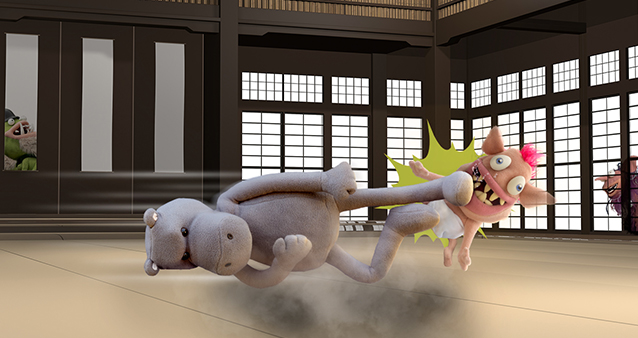Hippo Regret Monsters Survey: What South Africans Say

Regrets? Maybe you've had a few. But – as the Hippo.co.za Regret Monsters Survey shows – you're not alone. Here's a look at the results, and what you can learn from them.
Few things in life hurt more than regret. Between the "I wish I had..." and the "If only...", some of your biggest facepalms will be the result of doing something you wish you hadn't done or (perhaps even worse) not doing something you wish you had. In our quest to help you smash your regrets and make better decisions, we recently conducted the Hippo.co.za Regret Monsters Survey, asking South Africans to share their experiences around regret.
Our findings could be all the inspiration you need to make better choices, and to avoid your own future Regret Monsters.
Regrets: Everybody Has Them
First of all, it helps to know that you're not alone. Some regrets are fairly universal. If you've ever wished that you'd seen more of the world (especially during lockdown, when borders were closed and travel was restricted), so has half the nation: 50.2% of our survey respondents said they wish they'd travelled more.
Meanwhile, about a quarter regret not listening to their parents' advice (22.1%), and not prioritising their health (23.2%); while nearly a third (31.1%) regret having stayed in a bad relationship. Exactly a quarter (25%) wish they'd chosen a different career. Those are things most people can relate to, at least to some degree.
Ever accidentally dropped your cellphone in the toilet and couldn't afford to buy a new one? That's you and 27.9% of our survey respondents. (To avoid a repeat performance, compare cellphone insurance quotes now!)
Can You Be Too Cautious?
Our survey also revealed some of the regrets South Africans have around their career and their finances. About one in five respondents (19.79%) wish they'd taken out more insurance policies, and 55.3% regret getting into debt.
But while many people regret their irresponsible financial behaviour (and many do: just ask the 25.3% who've blown at least one salary cheque on payday), there's also a sense of regret around being too cautious.
Consider these results:
• 49.1% of respondents wish they'd taken more risks.
• 48.9% wish they'd followed their passion.
• 40.3% wish they'd been more adventurous.
• 49.3% regret worrying about what other people think of them.
"Our genes and our socialisation mean that we are naturally risk averse," says clinical psychologist Daniel Rabinowitz. "Our distant ancestors learnt, and we know, that jumping off cliffs and running towards lions usually does not work out well. But what if, while running away from a lion towards the end of a cliff, you jumped off and instead of dying, you landed in a deep refreshing pool of water, leaving the lion behind? You survived both the lion and the cliff, you had an adrenaline rush and you had a pleasant swim afterwards. What a day!"
Risk vs Reward... And Regret?
The key here is finding a balance between risk, reward and regret. While you don't want to miss out on all that life has to offer, you also know that risky behaviour could lead to even greater regrets. "Which would you rather do?" asks Rabinowitz. "Try something risky with a potentially huge payoff, but which might result in a spectacular failure, or pass on acting now and wait for a less risky opportunity without the prospect of such a huge potential payoff to come along? This is a key question behind regret."
Every regret has two sides to it. While 55.7% of respondents wish they'd started investing earlier, there are also 14% who say they regret taking a friend's bad advice on investments. There's risk – and potential regret – built into almost every decision you make.
"When directly compared or weighed against each other, losses loom larger than gains," says Rabinowitz. "We pay more attention to avoiding losses than to gaining things. In Thinking, Fast and Slow, Daniel Kahneman, who won the Nobel Prize in Economics, explains that organisms that placed more urgency on avoiding threats than on maximising opportunities were more likely to pass on their genes."
That, he says, is why the prospect of losses has become a more powerful motivator of behaviour than the promise of gains. "We are programmed to favour a sure thing for a lesser gain over the high probability of a greater gain because we fear disappointment. Conversely, a sure thing for a smaller loss – accepting an unfavourable legal settlement, for instance – is preferred to the low probability of a greater loss, because of fear of a large loss."
We'll unpack the Hippo Regret Monsters Survey in greater depth in future blog posts. Stay tuned!
In the meantime, we'll leave you with this scary statistic: 33.1% of our survey respondents say they don't have any insurance. That's a lot of regret waiting to happen. Rather be like the 44% who go online to compare insurance quotes when they're trying to decide which insurance company to use.
This article is for informational purposes only and should not be construed as financial, legal or medical advice.
Hippo Blog Categories

































